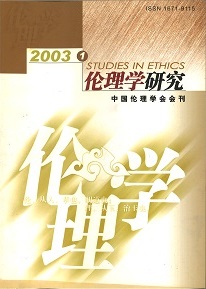|
|
Justice:the Dominant Concept in the West(Ⅱ)
LIAO Shenbai
2003(1):
69-74.
In the Western thought, the concept of justice has undergone many changes since it emerged in Ancient Greek. The idea originated in the Greek mythology and got its forms in the thoughts of Solon, Plato, and Aristotle. Connected with the conception of conscience of the Middle Ages Christianity, and enlightened via the theory of natural law, it then converged into the system of liberalismand adopted some influences of the socialism. This is the main route of the development of the dominant concept of justice of the West. Many ideas and notionshave left on it their deep influences. Developed from a different source, each of its various meaning added and made a supplement to it through the whole history since this concept emerged. At the meantime, these changes have been producingnew syntheses. Roughly speaking, since it was given its birth in the Greek thoughts, new syntheses had got their becoming based on the notions of the Christiandoctrine, theory of natural law, the modern and contemporary liberalism and socialism. Rawls' theory of justice as fairness is one of the most important syntheses of the Western notion of justice of our time.
|



